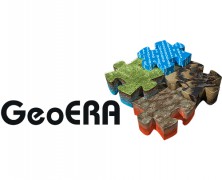Today, more than 40 national and regional Geological Survey Organisations (GSOs) from over 30 European countries have joined forces to launch the ERA‐NET co-fund action “Establishing the European Geological Surveys Research Area to deliver a Geological Service for Europe (GeoERA)”. The integration of the participants’ knowledge and information on subsurface resources, to support sustainable use of the subsurface and to address some of Europe’s grand challenges, is the key aim of GeoERA. The GeoERA programme, was initiated through EuroGeoSurveys – the organisation of European Geological Surveys, as part of the realization of its “vision towards a Geological Service for Europe” and extended to all GSOs on the European continent. It has an overall budget of 30.3 M€, of which 10 M€ is provided by European Commission and the remainder is provided by the GeoERA participants as in‐kind contributions to the funded transnational projects. It will provide interoperable, pan‐European data and information services on the distribution of geo‐energy, groundwater and raw material resources and harmonized methods to assess these. It will also develop common assessment frameworks and methodologies for supporting the European national and regional policy-makers for a better understanding and management of the water‐energy‐raw materials nexus to determine potential impacts and risks of subsurface use. Mrs Teresa Ponce de Leão, EuroGeoSurveys President, says “GeoERA represents the key step for establishing a common European Knowledge Base and to a joint provision of a Geological Service for Europe. The Geological Knowledge Base will provide European stakeholders with open access to objective and seamless data, information, knowledge and expertise on subsurface resources and their sustainable use and management”. Mrs Yvonne Schavemaker, GeoERA Project Manager, highlights the large impact GeoERA will have in integrating and harmonizing national and regional research resources and optimizing pan‐European coverage of geological...
Establishing the European Geological Surveys Research Area to deliver a Geological Service for Europe (GeoERA)
posted by admin
How to shape EU Energy Policy so as to boost European Competitiveness?
posted by EuroGeoSurveys
Successful participation of EuroGeoSurveys (EGS) to the High Level Conference on “How to shape EU Energy Policy so as to boost European Competitiveness?” that took place the 17th November 2014 at the European Commission. The EU Energy Union is shaped in such a way as to guarantee, not only security of supply for all consumers, but also stable and affordable energy prices for European businesses. The main political decision-makers and industry CEOs together high-level representatives of national and European institutions, research centers, academics and civil society discussed all the crucial and sensitive components of an EU Energy Union that is able to contribute to boosting European industrial competitiveness: economic, financial and technological conditions required to develop renewable energy and other domestic energy resources in order to reduce European dependence on third-country suppliers; development of infrastructure and internal as well as cross-border interconnections; overhaul of national practices on energy levies, tax components of energy prices and network costs; completion and improvement of the functioning of the EU internal energy market; moderation of energy demand and increase of energy efficiency; adjustment of the EU emissions trading system (ETS); diversification of suppliers and supply routes; etc. In this framework, Mr. Mart van Bracht (EGS President) was invited to explain the situation in Europe on the availability conventional and unconventional fossil fuel resources to reduce EU external dependence and prevent disruptions of energy supply. Mr. Mart van Bracht highlighted that unfortunately there is no detailed pan-European and unambiguous information about sub-surface energy resources, but a really very cautious estimate, based on information and know-how available at present, indicates that reserves of unconventional resources equals the decrease of conventional natural gas reserves and resources in Europe. Europe can still supply a serious part of its energy needs by...


